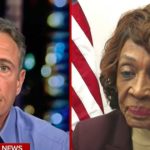OUR HEALTHHad your two doses of the vaccine and think that’s it? Not quite. Experts say an annual booster will be needed to deal with new variants or to address waning immunity. The uptake of vaccines is one key difference between recent outbreaks and last year’s catastrophe. Older people and first responders – including the health workforce – are now better protected and no longer transmit the virus as easily. Rolling up our sleeves to get the jab isn’t the only thing to which we have become accustomed. Pocketing a mask when leaving home is now as necessary as grabbing your keys. Infectious diseases expert and director of the Burnet Institute, Professor Brendan Crabb, said this habit was here to stay. “When we open on the back of strong vaccination we won’t need lockdown but will still need more than just vaccination,” he said.Over the past year, scientists have identified airborne transmission as a core coronavirus problem. This means better ventilation was now a must.Hotel quarantine has been overhauled, but Prof Crabb said there should be a national standard with ongoing audits. Head of the School Of Population And Global Health at the University of Melbourne, Prof Nancy Baxter, said the next frontier would be schools, where a lot of students won’t be vaccinated and air flow would be critical to reducing the chances of transmission. This meant “ensuring that the rooms kids are in are well ventilated”.The happy side effect of all of this, according to Prof Crabb and Prof Baxter, would be that we may no longer have to deal with the common – but nasty – flu.HOW WE LIVELook out for a new buzz phrase on real estate listings: the “Zoom Room”. Executive director at The Demographics Group, Bernard Salt, said an agent he spoke to used the term and it summed up a wider shift in “curating” the home. People are putting their “Bali budget” into their properties at a rapid pace, Mr Salt said. “We Melburnians lead Australia in the pursuit of lifestyle,” he said. “We created the quarter-acre block, we created Kath and Kim, and the global phenomenon Neighbours. There was always something not quite right about it in that we had to commute. Now, we have an opportunity to work from home. So the home must change. You can only keep sending emails from the kitchen table for a while.” It’s a trend echoed by Planning Minister Richard Wynne at a parliamentary hearing this week when asked about new apartment standards. He said developers were now treating workspaces as regular fixtures no matter the size of the home. “It may not be a big space but it will be a space, because people are going to work in an entirely different way to what they have in the past,” he said. “They might work a couple of days in their city office or their main office, and they might work a couple of days from home, but they cannot continue to be working from the kitchen table.”This phenomenon, according to Mr Salt, means people are also escaping the city if they can, and not just to a place from where they commute.“You can go to Cobden, or Nhill, beyond the commuter zone,” he said. HOW WE WORK AND COMMUNICATEThe shift to home working environments is here to stay, Mr Salt insists. “It’s a workplace revolution. Victoria and Melbourne in particular will revolutionise it.“The work from home has been a bizarre social experiment where we have proven to workplaces and workers that it can be done.” One of the reasons it’s possible, he said, was the NBN and improved internet speeds.This has also changed media and the arts as people stream like never before.Victorian head of the Australian Industry Group, Tim Piper, said the latest lockdown had a big impact on the work-from-home attitude. While people had been happy to return to work “whether it be three days or five days” they now assume it would be a matter of time before another lockdown comes. “It has a huge impact on the CBD. Melbourne has a CBD unlike other cities, it is the heart of our city.” To give an example of the impact, one CBD building last week capable of hosting 4000 people had 10 people at the office. Online platforms by which meetings can be held remotely are the norm, while Mr Piper said some conundrums for employees and employers now included: “Can I work for a Victorian-based company from Queensland?” Another workplace cultural shift is the sick day.When Covid-19 escaped hotel quarantine last year people battling through shifts while ill helped spread the virus.Prof Baxter said “we just can’t do that anymore”.“People can’t go to work sick, they could have Covid and give it to someone for who the vaccine didn’t work and they are vulnerable,” Prof Baxter said. “Even a mild cold that you could work through, it needs to be that you work from home.”For those who can’t work from home, financial protections will be needed.HOW WE TRAVEL Vaccination is set to become a second passport for international tourism. In the meantime, people have been encouraged to holiday at home.Mr Piper said the ongoing potential for lockdowns is playing havoc with the industry. Opposition planning spokesman David Davis said the severity of restrictions in Victoria had sparked concerns of a net outflow of people from Victoria, which could have a dire effect.“This has real consequences with a brain drain of our best and brightest,” he said.The length of Melbourne’s marathon shutdown to reduce its second wave probably won’t be seen again, due to advances made in contact tracing and health systems. One significant shift has been to go hard early and widely, in what Prof Crabb said was a recognition that there “is no middle ground” to the Delta variant in particular. Prof Crabb said quarantine systems would likely shift to a traffic light system once vaccinations were in arm, with residents from low-risk ‘green’ countries staying at home with monitoring – such as with electronic bracelets used in some countries – while ‘red zone’ travellers go to purpose-built centres.Mr Piper said forgotten firms hammered by the pandemic included airport offsite parking operators. Already, eight of 17 sites near Tullamarine have closed. He said an underrated consequence of travel chaos has been the psychological hit to families looking forward to school holidays. University of Melbourne epidemiologist Professor Tony Blakely pointed to a sunny horizon, however, saying that vaccines would bring more certainty. According to Prof Blakely, the sweet spot for domestic holidays could be around Christmas and the new year. “That’s going to be a great time for travel around Australia. We are going to have a lot more vaccine, and people won’t be coming here from overseas.“Once we open up, it will become a bit bumpy.”WINNERS FROM THE PANDEMICPRISONERSPrisoners in Victoria’s jails have had a combined 355 years shaved from their prison terms because of a pandemic loophole, with almost 5000 convicted criminals to be released early due to the coronavirus. Taxpayers will also foot the $2.48m bill for prisoners to make additional phone calls during the pandemic. PUBLIC SERVANTSPublic servants have pocketed millions of dollars in bonuses throughout the pandemic, while Victorian government employees were also given a working from home allowance. MEMBERS OF PARLIAMENTVictorian MPs were last week given a 2.5 per cent pay rise, equating to at least $5000 a year for each member, while Premier Daniel Andrews’ annual salary is expected to surpass $450,000. TRANSPORT COMPANIESOnline shopping surged throughout Melbourne’s various lockdowns, as physical retailers were forced to shut, leading to transport companies recording a surge in demand to deliver packages to pent-up Victorians. EPIDEMIOLOGISTSThe relatively unknown profession of epidemiology has been a vital source of information throughout the pandemic. Many now prominent epidemiologists have become well accustomed to the media, often providing expert opinion on latest developments to the masses. HEALTH BUREACRATSThe likes of chief health officer Brett Sutton, deputy chief health officer Allen Cheng and Covid-19 commander Jeroen Weimar have become household names throughout the pandemic.HOTELSWhile hotels were forced to forgo their traditional guests, they still managed to receive a steady income after being transformed into makeshift quarantine facilities and paid big bucks through the state government’s botched $377m hotel quarantine program. TECHNOLOGY COMPANIESCompanies that facilitated remote work were able to capitalise on the pandemic, notably online meeting company Zoom and work productivity tool Slack. REAL ESTATE AGENTS/TRADE SERVICESHouse values across metropolitan Melbourne have risen 8.9 per cent over the past 12 months, and with international crowds off the cards for the immediate future, people are instead putting their savings towards property. Similarly, trades such as cabinet makers and builders have also enjoyed an increase in business, as lockdown-fatigue Victorians put money towards home improvements. STREAMING SERVICESWith people cooped up at home and the novelty of home baking wearing thin, popular streaming services like Netflix, Stan and Disney Plus experienced a boom in customer demand. LOSERS FROM THE PANDEMICSMALL BUSINESSESSmall businesses bore the brunt of Victoria’s four lockdowns, forced to shut up shop on each occasion. Thousands of struggling businesses, which were eligible for grants from the latest lockdown, are still waiting for cash from the recovery support fund. FAMILY VIOLENCE VICTIMSFor those experiencing family violence, lockdown was a real-life nightmare. While Victoria Police made their position clear that victims could flee dangerous situations, perpetrators were able to use the pandemic and stay-at-home orders to their advantage. THEATRES/CINEMASMelbourne-based mega-hit Harry Potter and the Cursed Child was forced to halt production throughout much of the pandemic, as indoor entertainment venues were deemed higher risk than outdoor venues. RESTAURATEURSWith hospitality subjected to only take away, the restaurant industry lost a chunk of its usual market, instead forced to adapt its business model to make an income on just take-out orders.TOURISM OPERATORSVictoria’s regional tourism operators were dealt a double blow with no interstate or intrastate travellers, as Melbourne’s catastrophic second wave saw a controversial ring of steel imposed between metropolitan Melbourne and regional Victoria. HOSPITAL PATIENTSPeople waiting on hospital treatments were forced to put their health ailments to the side, as elective surgery was repeatedly paused in a bid to have health services prepared for a potential rise in Covid-related hospitalisations. NIGHTCLUBSWhile most businesses were able to enjoy trade when restrictions finally lifted, nightclubs found it difficult to turn a profit with strict density limits in place.
Powered by WPeMatico






